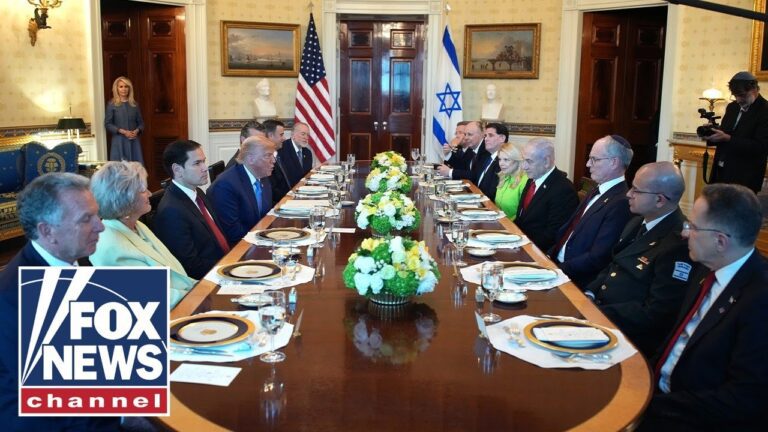Video at the bottom!
In a recent discussion regarding the ongoing tensions between Israel and Iran, a prominent leader expressed cautious optimism about potential peace. While emphasized that the ultimate authority to answer whether an end to conflict has been achieved lies with Israel’s Prime Minister, he conveyed hope that both nations could move toward reconciliation. He acknowledged Iran’s desire for peace, showcasing a readiness to support such efforts if needed.
The leader reflected on the significant advantages gained through the partnership between Israel and the United States, particularly during President Trump’s administration, which facilitated historic victories. He highlighted the importance of their combined military capabilities, which effectively countered existential threats posed by Iran’s nuclear ambitions and ballistic missile developments.
Despite this progress, the leader warned that vigilance is necessary to prevent these threats from re-emerging. He expressed appreciation for the achievements made but underscored the importance of continuous monitoring to ensure lasting security.
They spoke about the potential for expanding the Abraham Accords, viewing this as a monumental opportunity that could reshape relations in the Middle East. The leader noted that any actions testing resolve would be ill-advised for Iran, shaping their future trajectory and regional dynamics.
When asked about regime change in Iran, he suggested that such a decision should rest with the Iranian people. Shifting focus to Syria, he acknowledged the changes that favor Israel’s security interests since Iran’s influence through Hezbollah has waned. He signaled that there’s now a better chance for peace, bolstered by an apparent shift in regional power dynamics post-Assad.
Overall, the conversation indicated a blend of hope for diplomatic advancements while maintaining a cautious stance on the unpredictable nature of geopolitical relations in the region.


